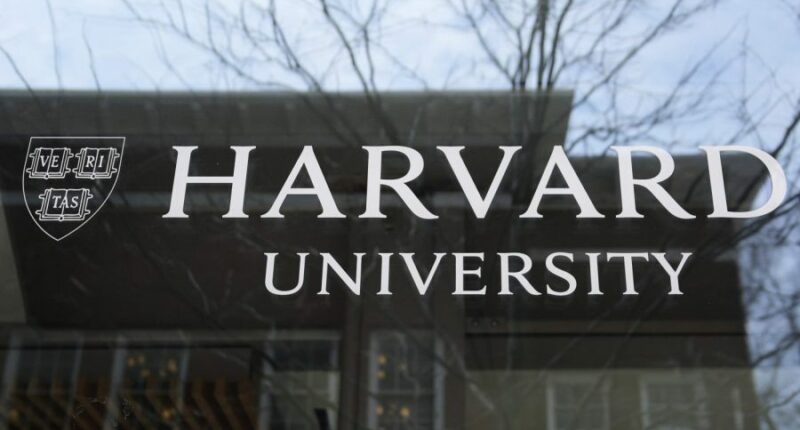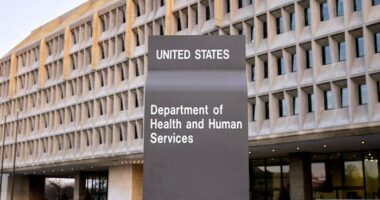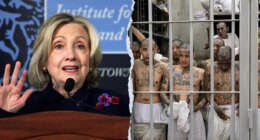Share this @internewscast.com

(The Hill) — The Trump administration is intensifying its conflict with Harvard University, even though the president had previously suggested that an agreement might be forthcoming.
The White House is employing almost all the tools available to pressure Harvard into complying with its demands. Recently, they have threatened the university’s accreditation and issued a subpoena concerning international students.
“We’re witnessing a clear strategy from the Trump administration. They’ve been candid about their intent to use every type of leverage at their disposal to make institutions conform to their agenda,” stated Jon Fansmith, senior vice president of government relations and national engagement at the American Council on Education.
“What we’ve seen so far is across every aspect of the public space, whether that’s in the courts, whether that’s in public opinion … they are losing these arguments, and it’s unfortunate they keep trying to expand the efforts. It’s unfortunate they keep trying to politicize processes that have worked well for a long time,” he added.
On Wednesday, the Education Department sent a letter to Harvard’s accreditor, saying that the Trump administration probes have found the school in violation of federal antidiscrimination laws.
“By allowing anti-Semitic harassment and discrimination to persist unchecked on its campus, Harvard University has failed in its obligation to students, educators, and American taxpayers. The Department of Education expects the New England Commission of Higher Education to enforce its policies and practices, and to keep the Department fully informed of its efforts to ensure that Harvard is in compliance with federal law and accreditor standards,” Education Secretary Linda McMahon said.
Removing accreditation would cut off Harvard’s access to federal student aid. Universities that have lost accreditation typically shut down soon afterwards, though none the size or age of Harvard have ever been targeted.
While the Commission emphasized in a statement that the government cannot force it to take away accreditation and that the processes even for those found to be in violation can last years, higher education experts are getting nervous about the unprecedented nature of these letters from the Trump administration.
Earlier this year, the Trump administration sent a similar letter to Columbia University’s accreditor.
“The letter that was sent informing Harvard there was an investigation — of course, the accreditors need to be aware of that, but the accreditors need to be able to make their own decision as to what to do with that information, and it seems like Secretary McMahon is trying to go beyond that, which, to me, stands as an unprecedented overstep in what the role of the Department of Education has been in the past in terms of accreditation in in higher education,” said Gerardo Blanco, academic director for the Center for International Higher Education at Boston College.
Meanwhile, the Department of Homeland Security said it was going to subpoena Harvard for information about its foreign students, one of the major fronts in both President Donald Trump’s war with Harvard and his sweeping immigration crackdown.
Harvard has denied allegations from the federal government that it has withheld information about its international students and contends it has complied with all “lawful requests.”
“Harvard certainly has it within its rights to challenge that subpoena, to say that it’s inappropriate, that it’s overbroad, that they’ve responded to it,” said Ray Brescia, a professor at Albany Law School. “If it’s inappropriate, if it violates the students’ rights, if it’s too expansive, then I imagine that Harvard is going to resist it to the full extent of the law.”
Harvard decried both the actions this week, condemning the federal government’s findings that it violated antidiscrimination laws and insisting it has turned over the information regarding its foreign students that it was legally obligated to.
“Harvard is far from indifferent on this issue and strongly disagrees with the government’s findings. Harvard continues to comply with the New England Commission of Higher Education’s Standards for Accreditation, maintaining its accreditation uninterrupted since its initial review in 1929,” a spokesperson said.
Any move that Trump makes against Harvard can be seen as a warning shot to other schools, particularly after the University of Virginia and the University of Pennsylvania both made major concessions to his administration after their funding was endangered.
“I think one of my biggest concerns is that this is happening to Harvard, but this could just as easily switch to other institutions. Of course, we saw it happen at Columbia. We’ve seen things happen at Penn. Different institutions are dealing with it differently,” said Marybeth Gasman, executive director for Rutgers University’s Center for Minority Serving Institutions.
“With regard to Harvard, I think that they can fight this in the courts, and they’ve already had some success,” Gasman added.
But the latest escalations come after Trump said last month that his administration was close to achieving a deal with Harvard.
The school and the administration are locked into two court battles — one regarding $3 billion in funding paused to the university and another over a directive that attempted to ban Harvard from enrolling foreign students.
The funding case has a hearing at the end of July, while a judge has ruled against the directive banning foreign students; Trump has appealed that ruling.
“We have been working closely with Harvard, and it is very possible that a Deal will be announced over the next week or so,” Trump said on June 20.
“They have acted extremely appropriately during these negotiations, and appear to be committed to doing what is right. If a Settlement is made on the basis that is currently being discussed, it will be ‘mindbogglingly’ HISTORIC, and very good for our Country. Thank you for your attention to this matter!” he added.
Since that announcement, the administration has been mum on any details, and Harvard has not given any indication of a deal will be forthcoming.
Trump has also made similar statements about trade agreements with other nations that have so far produced no apparent results.
“It does make you wonder why they feel the need to keep talking about having a deal when those deals don’t manifest. And I will say I don’t know where negotiations stand, but Harvard has been very clear in the past about what the red lines [are] for them,” Fansmith said, emphasizing the institution says it won’t give up control of its faculty.
“I don’t know whether there is some effort in the administration where they are either trying to preemptively take credit for what’s coming, or whether they are not successful in trying to simply shift the public narrative around what’s happening here, to make it seem like these abusive efforts are winning,” he added. “Hard to say, but certainly this is now the third or fourth time we’ve heard from the administration that they’re on the cusp of the deal, and yet no deal has come to anything, so certainly in this and many other areas it’s reasonable to question their credibility.”














